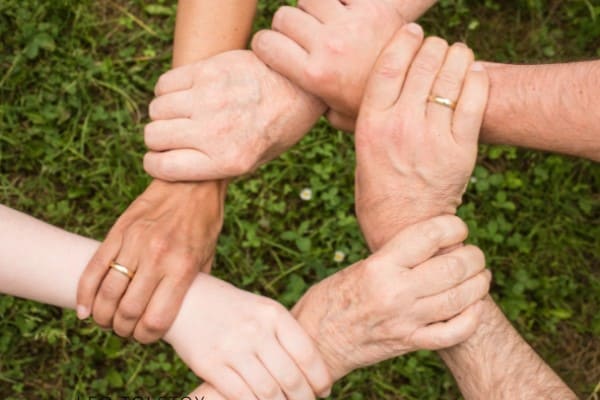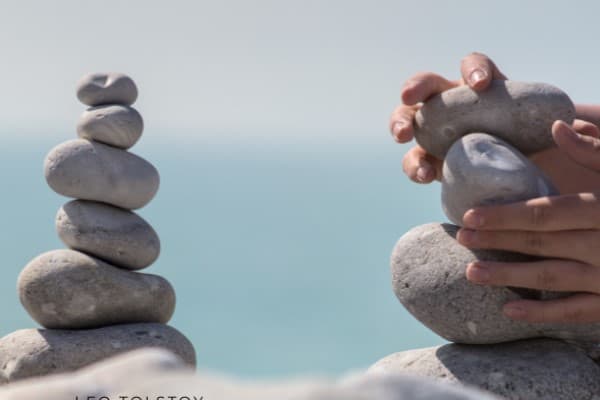7 Habits of Happy Grateful People That Practice Gratitude
Practice gratitude daily as a wise decision to start to ensure your happiness.
Science continues to affirm that being grateful and thinking positive things is good for your health and well-being.
Feelings of gratitude are perfect for business.
Before you start, you can take three steps to help you begin to feel more positive emotions.
You can learn to appreciate the good things in your life – and feel grateful for them.
- Notice good things
- Look for them
- Appreciate them
Pay close attention to those good things in your life.
Savor, absorb, and express your gratitude to yourself, write it down, or thank someone.
Read on if you want to know the seven habits of the happiest people, firmly grounded in research that will help with Gratitude Practice.

Practice gratitude and express gratitude.
Several research studies have shown that a deep sense of gratitude increases happiness by up to 25 percent.
Being grateful helps reduce anxiety, stress, and depression.
The evidence indicates that genuinely appreciative people are more resilient.
They go to sleep happy -sleep tight and wake up refreshed.
To cultivate gratitude, you can speak out about what you are grateful for or write them down.
Make it a part of your morning routine, just like brushing your teeth.
Expressing Gratitude is more than being courteous, mannerly, or polite.
It’s about showing your heartfelt appreciation.
When you thank someone, you’re also practicing the first two gratitude skills: you’ve noticed something well, and you’ve genuinely appreciated it.
Try a two-minute written exercise.
Write what you are thankful for first thing in the morning.
You will beam and discover better ways to practice gratitude and express gratitude throughout the day.

Practice gratitude and choose kindness.
While most people don’t see the value of being kind and impacting business, evidence shows otherwise in the office or playground.
Research suggests that when children see other children help each other, it heightens a sense of well-being.
Express Gratitude by doing kindness.
Gratitude might inspire you to be thoughtful and to return a favor or act with kindness.
Or you might see a situation where you can “pay it forward.”
Holding the door open for the person behind you may not seem like a big thing.
You let someone in a hurry cut in front of you when you drive.
Even if it means waiting a little longer than you have helped someone else out.
Do someone a favor without letting the person find out it was you.
Notice how you feel afterward!
We feel encouraged when we see an act of kindness, which is called an “elation.”
We are more likely to behave with kindness towards others.
Kindness begets more kindness.
Overall, this improves communication, collaboration, and understanding with your family members in your daily life.
“‘Gratitude is the fairest blossom which springs from the soul.” — Henry Ward Beecher (1813-1887)
Practice gratitude and be generous.
In one study of over 600 Americans, “the amount of money they gave away predicted happiness. The more they invest in others, the happier they are.”
A Gratitude Jar is a fun way to create a visual reminder of all the blessings in our lives.
Science confirms that giving is good for our mental health. It evokes a deep sense of gratitude and has a positive impact on our daily lives.
Tell the people in your life how you feel about them and what they mean to you.
In the right tone at the right moment, even a simple “Glad you can make it. Thanks!” means a lot.
One Harvard Business School report even concluded that emotional rewards are the best when our generosity is connected to serving others.
Practice gratitude and forgiveness.
Forgiveness allows you to look at your mistakes as a part of life.
When you practice forgiveness, an extraordinary learning experience happens.
You learn and grow.
Research shows that forgiveness can help you let go.
You move on from upsetting situations more quickly.
If you have wronged someone, you can write a letter.
A Gratitude Letter can let you show appreciation in a meaningful way.
By doing so, you can enjoy life to the full.
Forgiveness lightens you up.

Grateful people are naturally curious.
Several studies suggest that curious people connect better.
They have an innate childlike quality in learning more about people and how things work.
When you are naturally curious, you want to learn more about the other person you just met.
Or you may reach out, introduce yourself, and make a new friend.
Grateful people have better relationships and enjoy socializing with others in their community more.
Other people feel easily attracted and socially closer to individuals who display curiosity.

Practice gratitude and exercise patience.
When we achieve more challenging goals, we experience more satisfaction and our sense of gratitude multiplies.
Other research also found that patient people are more resilient.
They experience fewer negative emotions and cope better with stressful situations.
Grateful people are less susceptible to depression.
Practice gratitude rituals.
Some people say grace before a meal.
Children learn to pray before bedtime.
Pausing in gratitude before eating doesn’t have to be religious.
It’s a simple habit that helps us notice and appreciate the blessing of food on the table.
As they feel more gratitude in their lives and connect well with others, they become happier by sharing a greater sense of abundance.

Practice gratitude by keeping a gratitude journal.
Science says you can train your brain to be happy and optimistic.
To be satisfied, you need to write in a gratitude journal or a book rather than on a piece of paper.
Start a gratitude journal.
Committing to writing down good things each day makes it more likely to notice good things as they happen.
Make it a daily practice to note the things that you are grateful for and appreciate.
Each day, think of three things you are grateful for.
- Nature
- People
- Community
- Shelter
Creature comforts like a warm bed or a good meal.
It’s amazing what you notice when you focus on feeling grateful.
Start with one in the morning.
Write another two things that happened at any time of day.
If you can’t think of anything now, how about being grateful that you are breathing?
If you are running or exercising, you may pant for breath or breathe hard.
Think of the people who are in COVID-19 wards who have difficulties breathing.
Are you grateful that breathing comes easily and naturally?
According to the research, journaling for 21 days in a row can raise one’s level of positivity.
Your brain performs significantly better when you are neutral, happy, and grateful.

In Conclusion
Genuine Gratitude doesn’t leave you feeling like you owe other people something.
It’s all about feeling good and creating a cycle of good.
Your positive outlook, a deep sense of gratitude, and a Gratitude List will help replace any negative emotions.
When you practice gratitude, you become grateful and reap the fruits of abundant life.
You will find your physical health improving.
You will sleep soundly, wake up refreshed, and have clarity of mind.
Get the motivation you need to start, grow your levels of gratitude, and lead a wonderfully blessed life today.
Source:
The Top 10 Habits of Grateful People…Even In Tough Times



